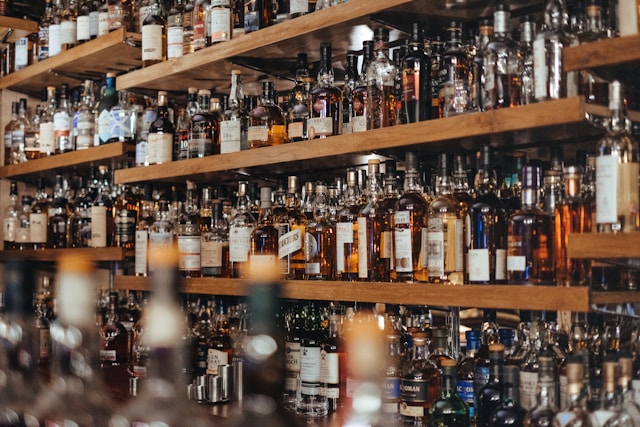
Understanding the Intricacies of Alcohol Licensing in the Food and Beverage Industry
Key Takeaways:
- Securing an alcohol license is vital for businesses and requires knowledge of state-specific regulations.
- Public safety, responsible service, and compliance are integral to the alcohol licensing framework.
- With the right insights and preparation, businesses can streamline licensing and avoid pitfalls.
- Technological advancements are making it easier for establishments to comply with licensing requirements.
Table of Contents
- An Overview of Alcohol Licensing
- Critical Factors Affecting Alcohol License Approval
- Alcohol Licensing and Public Safety
- Navigating State-Specific Alcohol Licensing Laws
- The Role of Consultants in Securing an Alcohol License
- Renewing and Maintaining Alcohol Licenses
- Preparing for License Inspections and Audits
Companies must navigate complex regulatory landscapes to succeed in the food and beverage industry, mainly when serving alcohol. An alcohol license is a gateway to offering a comprehensive dining experience but obtaining one involves thorough preparation and adherence to state regulations. The ramifications of alcohol licensing extend beyond permission to serve; they directly tie into public safety, legal compliance, and the profitability of any establishment. To start this journey, one should consider the comprehensive guidance for a TABC license, which encompasses understanding state-specific legislation and managing its operational requirements.
An Overview of Alcohol Licensing
The path to obtaining an alcohol license is more than a bureaucratic hurdle; it’s a commitment to adhere to a set of standards designed to safeguard the community and ensure the responsible sale and consumption of alcohol. Each state in the U.S. harbors unique requirements and procedures for obtaining such licenses, making it crucial for business owners to be well-informed. This process often involves substantial paperwork, adherence to state and local laws, and an in-depth understanding of the statutory framework that governs the sale of alcohol.
Critical Factors Affecting Alcohol License Approval
Attaining an alcohol license hinges on several key aspects that applicants must consider. Local state laws will restrict the blueprint for application and approval, requiring businesses to engage with them closely. Background checks and rigorous compliance investigations are conducted to evaluate the suitability of applicants, ensuring that licenses are given to those capable of upholding legal and ethical standards in their business operations. Additionally, the sentiment and well-being of the community play a non-negligible role in the licensing process. Public interest often influences decision-making, as licensing authorities consider the potential impact of alcohol sales on the neighborhood. The TABC license permits businesses to legally sell and serve alcohol within Texas, ensuring compliance with regulations and responsible alcohol service practices. Obtaining a TABC license requires adherence to specific guidelines and training to promote the safe and responsible consumption of alcohol.
Alcohol Licensing and Public Safety
One must discuss alcohol licensing by emphasizing its role in public safety. With alcohol-related incidents presenting a significant concern for communities, the licensing process incorporates stringent measures to minimize risks. Education and training programs are a staple requirement for staff in licensed establishments, equipping them to handle alcohol responsibly.
Navigating State-Specific Alcohol Licensing Laws
Businesses must be aware of the alcohol licensing laws pertinent to their specific state, as these can vary greatly. For example, understanding the intricacies of the Texas Alcoholic Beverage Commission (TABC) regulations is essential for establishments within Texas. Navigating these requirements can be particularly daunting for entities operating across multiple states, each with a distinct legal landscape. Awareness and compliance with these variances are necessary to avoid pitfalls and smoothly acquire and maintain licenses in different jurisdictions.
The Role of Consultants in Securing an Alcohol License
The complexity of obtaining an alcohol license often necessitates specialized knowledge that business owners might not possess. This is where alcohol licensing consultants come into the picture. These professionals offer valuable insights into the licensing maze, assisting with documentation, understanding legal jargon, and expediting the approval process. Their expertise can prove pivotal, mainly when unforeseen hurdles arise, making their services a wise investment for any establishment navigating the licensing landscape.
Renewing and Maintaining Alcohol Licenses
Maintaining an active alcohol license is as important as obtaining it. Regular renewals are part and parcel of license maintenance, requiring ongoing attention and action from license holders. Alertness to changes in legislation is also crucial to prevent lapses in compliance as laws and regulations evolve. A business must stay aligned with these dynamics to avoid jeopardizing its operations and ensure that it continues to benefit from the privilege of alcohol sales.
Preparing for License Inspections and Audits
Inspections and audits are inevitable aspects of holding an alcohol license. Businesses should anticipate and prepare for these evaluations to demonstrate compliance and commitment to legal standards. Proper documentation, employee training, and a solid understanding of regulatory expectations pave the way for a smooth and successful audit.
